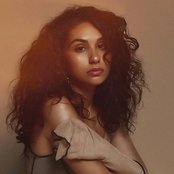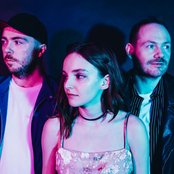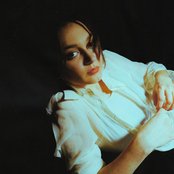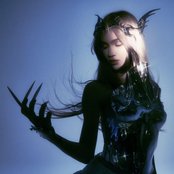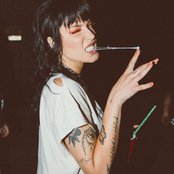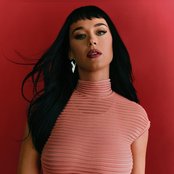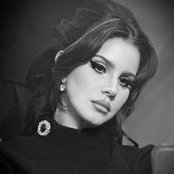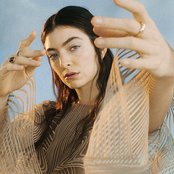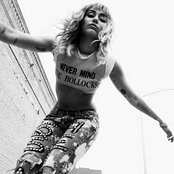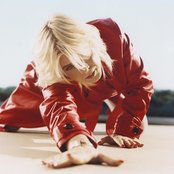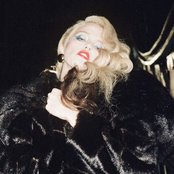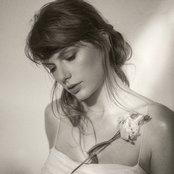by Jessica Gentile
It might seem weird to cite a musician who is only twenty as highly influential, but in the case of Lorde it's actually accurate. When the New Zealand wunderkind dropped her debut album Pure Heroine in 2013 at the age of sixteen, it not only shifted the music landscape, but opened a space for a new kind of pop artist to enter the charts.
From the opening snap of "
Royals" the world was immediately taken by the singer-songwriter and her anti-pop persona. The song worked as a catchy rebuttal to the wealth and opulence so often flaunted by celebrities. But here's the catch: it used all the familiar pop tropes -- like soaring vocals, a taut beat and echoey stomps -- to parlay its message. "Royals" was fresh but familiar, a magic trick of a song that became a worldwide phenomena. In the throes of a global recession, Lorde was the critic of "Cristal, Maybach, (and) diamonds on your timepiece" that world-weary adolescents looked to.
Lorde's dark, minimalist approach stood in stark contrast to bright optimism of her peers. It's hard to imagine a Taylor Swift song about the pitfalls of conspicuous consumption. Yet while Lorde lacked the cupcake-kitsch of Katy Perry or the debauchery of Miley, she was still able to have fun. On "Ribs" she sang about spilling drinks and listening to Broken Social Scene while her parents were out of town for the weekend and on "Buzzcut Season" she hung by the pool with her bestie. She might have been over "getting told to throw (her) hands up in the air" but she was still capable of living in the moment. Discontent to wallow in nostalgia like Adele, or glamorize it like Lana Del Rey, Lorde, like the best Instagram feed, documented the present and anticipated the need to look back on it later. The brilliance of Lorde's debut was her ability to enjoy adolescence while still seemingly rising above it.
While Lorde made music that stood in opposition to her peers she never pitted herself against them, in fact just the opposite (see: her well-documented friendship with Taylor Swift). Rather than competing to fill the roles of her peers, she carved out a space of her own. One that, despite years of major label grooming, seemed autonomous and natural and less the product of marketing executives say the way
Avril Lavigne or Ashlee Simpson arose, following the early 2000s teen-pop boom of Britney and Christina.
If anything
Pure Heroine proved there was a market for introspective, world-weary teens that don't like being spoken down to. The kind of kids who like to brood, but also like to dance. That's not to say like-minded acts didn't exist prior to Lorde. Grimes, Chvrches and Sky Ferriera filled that niche in the indie sphere just fine. But in the early 2010s there was a definite commercial void. The space Lorde occupied allowed for a flood of thoughtful, and equally young, if less gifted, performers to enter the pop charts.
At just nineteen, Toronto native
Alessia Cara had a major breakthrough with sleeper hit "Here." The anti-social anthem of 2015 found the teen stranded at the world's lamest party. It's hard to imagine the success of such an introverted song without the precedent set by Lorde's equally jaded hit "Team." And that's far from the only example. That same year, then twenty-year-old Halsey released Badlands a whole album of raspy-voiced, electronic pop. One track in particular "New Americana" served as a millennial call to arms. It's condemnation of the "survival of the richest" makes it "Royals"-lite. Other up-and-coming- singers like Daya built their careers on grand pronouncements of independence not just from men, but from money as well, as the lyrics to "Sit Still, Look Pretty" attest.
Many of these acts lack Lorde's lyrical sophistication or self-assured swagger. Seventeen-year-old
Olivia O'Brien's 'hate u love' for instance, reads very much like the clumsy teenage diary entry that it likely originated as. That's probably to be expected though. It's hard for anyone to articulate their experience and parlay it into song, let alone someone who's been alive less than two decades. Even with a team of top producers, angsty awkwardness is usually the default.
That most of these acts are less graceful variations on Lorde's sound and spirit, proves just how nuanced her musical take on millennial adolescence really is and how hard it is to achieve. One needn't look further than the stilted lyricism of
The Chainsmokers "Closer" for evidence. And those guys are pushing thirty.
As the Lorde enters her twenties, she has assured fans that she will take them on a journey into adulthood. Her latest single "
Green Light" is a confident first step. It's the most triumphant break-up anthem since Robyn's "Dancing on My Own." With its propulsive beat and rallying cry for independence, it marks a new level of maturity for the artist. If "Green Light" signals a new era for the pop star, let's also hope it indicates a new era for the pop charts. One that's inspiring to the many imitators she has spawned.
Check out Lorde's Top Tracks on Last.fm:
- 1. Green Light
- 2. Royals
- 3. Team
- 4. Tennis Court
- 5. Glory and Gore
Follow Last.fm elsewhere: Facebook | Twitter | YouTube | Instagram | Spotify | Soundcloud |Flickr

